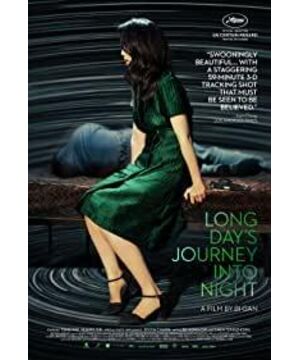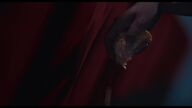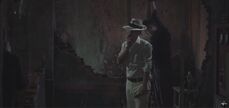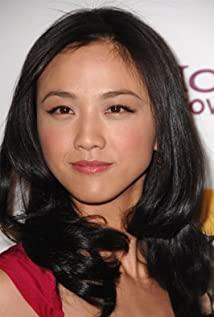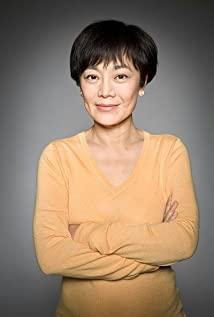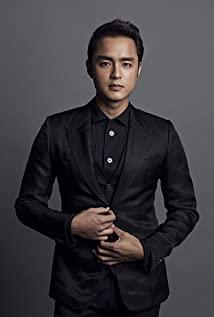I watched "Last Night on Earth" twice, and I still like it very much. In my opinion, the quality of this film is four stars, but because Bi Gan's wayward character and extremely personal expression are rare in domestic films, so I give it five stars.
An important premise for analyzing this film is that Bi Gan, the director of this film, is also a poet, and there are a lot of poems written by him in his "Roadside Picnic". After understanding Bi Gan's identity as a poet, it is much easier to understand the film. Much of the film's symbolism uses poetic language:
Apple stands for bitterness. The most typical example is that the actor said that a sad person would eat an apple, and then he saw Li Hongqi nibbling on an apple there, tears and snot, and finally swallowed the apple core;
Movie theaters are related to dreams, and it was because the actor fell asleep in the movie theater that he entered the one-hour long shot in the dream;
(It is worth mentioning that the male protagonist in the movie has long been unable to distinguish between dreams and memories, just like Ma Xiaojun in "Sunny Days". The proof is that he said "The movie must be fake, and it is shot one by one. composition; and the memory cannot tell the truth from the false, and always comes to the front.”)
To fly into space is to fly to freedom, there is nothing to say about that.
There are also some very important metaphors, which I will talk about later.
At the beginning, after applauding with Qi Xi in the hotel, the male protagonist said that he had a dream of a missing person. Qi Xi asked him if that person was his lover, and he said so. That person believed that everyone who watched the movie knew it was Tang Wei.
After that, the male protagonist said a very important monologue, to the effect that his friend Bai Mao once asked him to send a carload of apples to a man named Zuo Hongyuan. At that time, he had just divorced and had a bad memory, and by the time he remembered it, the apple was already rotten. Remember this sentence, it will be used later. The "carload of apples" here is not a real apple, but a heart filled with sadness.
Then the male protagonist met Tang Wei. Note that the scene where they meet is clearly not real, I think it's a dream. Because the male protagonist said at the beginning: "As long as I see her, I know I must be in a dream again." When the train encountered a mudslide, the scene they were in was very similar to the cab of the train, and then inexplicably To the male protagonist's car, there is no process in between. This is in line with the stream-of-consciousness feature of seamless switching of scenes in dreams. Most of the scenes in this film are like this, the characters speak upside down, the behavior lacks logic, and the scenes are false and unreal. When I recalled after watching it, I couldn't tell the difference between reality and dream at all. I can only say that most of the time this movie happened in a dream.
When they first met, Tang Wei said her name was Wan Qiwen, and Wan Qiwen was a Hong Kong female star in the 1980s and 1990s.
The problem is that the male protagonist and Wan Qiwen were not younger when they met for the first time, and they were still driving a small truck that was given to him after his father died. The time line is obviously not right, so I guess Wan Qiwen is actually the mother of the male protagonist. Avatar.
What, doesn't it look like you can't believe it? Don't worry, then the movie mentioned that the actor's father left him a dark green clock after his death, and he found a photo of a woman and a green book behind the clock. Blind people can see that the photo must be the mother of the hero. It's a pity that the face in the photo can't be seen, and the actor said that Tang Wei's makeup looks like her mother in the photo.
By the way: in "Riding the Wind and Waves", the mother's photo in the hands of the protagonist can't see the face. It seems that Han Han and Bi Gan also resonate quite a bit (both are from small places, and both have deep feelings for their hometown. Ting. Lin Zhen is to Han Han what Carey is to Bi Gan). I also saw Han Han's Tingdong Pictures and Han Han's own name in the opening subtitles of "The Last Night on Earth".
On the back of the photo, there is also a phone number of a woman named Tai Zhaomei (also the name of a female star, Tai Zhaomei is the original singer of the promotion song "Dark Green Night").
After finally contacting that Tai Zhaomei, he asked Wan Qiwen. The male protagonist mentioned that his mother disappeared when he was a few years old, and he probably didn't remember her mother's appearance, so he imagined her to be like Tang Wei. In the male protagonist's dream, his mother is simply the incarnation of the goddess of literature and art. She likes watching movies and stealing things with others, so she stole a green book that recorded a love story. Can rotate.
By the way, she is still the hero's lover and wants to run away with him.
It may be because of guilt, so he also had an affair with Wan Qiwen in the dream, with Zuo Hongyuan, his father's shadow, in the middle, and they could never escape from this shadow.
Just as his mother is not really called Wan Qiwen (the male protagonist said to the signboard of "Xiaofeng Restaurant" shortly after the opening, this is my mother's name), his father is not called Zuo Hongyuan, Zuo Hongyuan is a famous music producer people. Even the actor's own name, Luo Hongwu, is also a singer. There are so many with the same name and surname here, it is estimated that all of them are pseudonyms. The director is using this method to remind us that although some of the plots in it may correspond to the real experience of the protagonist, they are basically dreams.
Tai Zhaomei said that her mother was a liar, and the boss also said the same when the hero went to a small hotel to find a fuck. So is she really such a person? I don't know, maybe it's true, because it was 2000 when the male protagonist and Wan Qiwen met in a dream (there was also a water glass shaking like "Inception"), but then the waiter of the small hotel said that now No one watches TV anymore, and that's obviously more than 2000; but it's also possible that it's fake, it's the male lead's resentment of his mother, which leads him to think she's a liar.
But anyway, the actor got an important clue from the hotel owner: Wan Qiwen later went to the karaoke hall to sing. After that, the male protagonist can see that his neurosis has reached an advanced stage in the karaoke hall: the karaoke hall has obviously been demolished, but he is still asking the prostitute when someone will come to sing. When he saw Wan Qiwen on the old movie poster, he said he was looking for Wan Qiwen, Naturally, the answer is that the bull's head is wrong.
The prostitute told him to go to the cinema to see it. If the previous dreams were relatively fragmented, then the next hour-long shot represented the hero entering a deep and continuous dream. For this reason Movies are specifically differentiated in 2D and 3D. And that deep and dark mine was a time-space tunnel that took him to meet his childhood self.
Yes, that kid was the hero of childhood. Bi Gan has played through time and space in "Roadside Picnic", allowing the protagonist to see the same character from different periods, and it is all achieved through a long shot. Before, he went to see Zhang Aijia, the owner of the hair salon. That Zhang Aijia should be the "Chen Huixian" that the actor said he was looking for earlier, and the name of a star. Chen Huixian said that when he was a child, he often went to prison with Bai Mao to see Bai Mao's father. Later, when the actor saw the child, he felt very strange, and finally gave him a nickname called Bai Mao. This shows that the role of "white cat" does not exist at all, and the male protagonist and white cat are always the same person - there is another proof of this, that is, Luo Hongwu told Wan Qiwen to teach their children to play table tennis. This is the first thing I do after arriving at the little white cat. It seems that Luo Hongwu is also a projection of the hero's subconscious father. He is trying to repair the regrets of the past in a dream. When I think of the white cat at the beginning, if the hero asks the hero to send a truckload of apples to Zuo Hongyuan, the password will be unlocked - the hero's father went to prison when he was very young, which is why the mine The child in the cave looked so lonely. "White Cat" likes to lie, and "Wan Qiwen" also likes to lie.
The actor also said one thing at the beginning: Bai Mao (himself) was killed by Zuo Hongyuan (his father), so in his dreams he said that his father was the murderer. This probably symbolizes the cruelty that his father abandoned him when he was a child. The pistol he got from Zuo Hongyuan is a figurative expression of this cruelty. Later, he also pointed the gun at Zuo Hongyuan in a movie theater. Such an idea can be attributed to the Oedipus complex of "killing the father and marrying the mother".
The metaphor of Bai Mao's "death" is probably the death of the hero's heart. Since then, he has suffered from heart disease. I don't know if it is because of this reason that he divorced.
Back to that long shot. After being separated from the 12-year-old little white cat there, the male protagonist meets another Tang Wei, this time her name is Kaizhen, which means the pearl of Kaili (Bi Gan's hometown). From this, it can be further proved that Tang Wei is the reflection of the hero's mother rather than the real lover - if Tang Wei is really the hero's former lover, then in his dreams, he will use a different name, a different appearance, and a different situation. It is already impossible to appear, and it is even more impossible that the hero does not know where she is from - from the name, it seems to be from Guizhou, but the accent is completely different, only the mother who is vague in the hero's mind will be so. The mother in the dream is always at ease with him, like an ethereal phantom.
Later, the male protagonist met Zhang Aijia again. This Zhang Aijia has similar hairstyles to Kaizhen, and this hair was dyed by Zhang Aijia, who was the owner of the hair salon before, in front of the male protagonist. Basically, it can be concluded that these are the incarnations of the same person. It's just that Tang Wei looks like a young mother in his heart, while Zhang Aijia is old; just as Li Hongqi played the male lead when he was young, and Luo Hongwu is the later him.
Here, Zhang Aijia was called a "crazy woman" as soon as she appeared on the stage. This is also the male lead's resentment towards his mother for many years. He followed this "crazy woman" and saw that she was about to run away with a man. Explain the reason why the hero's mother disappeared that year. The man also complained that Zhang Aijia had burned their house, which was probably the hero's inner innuendo to his mother's destruction of their family. He asked with sadness: "Do you really want to go with this man?" After getting a positive answer, he chose to let them run away, but he still pointed a gun at Zhang Aijia, trying to rob her most precious thing. Zhang Aijia gave his watch to the male protagonist. The watch, like the clock left to him by his father before, symbolized time. For Zhang Aijia, the most precious thing is the young years she has passed away; and for the male protagonist, the most precious thing is the time he and his parents have been with him forever.
There are still two very important clues here. One is that the actor asked Zhang Aijia to have no one to care about? Zhang Aijia replied, "The person I care about is still young, and will soon forget me"; another is that she said in the hair salon that the hero's mother would steal honey, she said that as long as she held up the torch, she would not be afraid of bees biting . Later, when Zhang Aijia was eloping, he held up a torch and said, "Although it is all bitter, at least the honey over there is sweeter." In my opinion, bees refer to the bitterness of life, while honey refers to the sweetness of love.
When Wan Qiwen and the male protagonist met for the first time, they said they wanted wild grapefruit. Wild grapefruit is not only the fruit on the Kaizhen fruit machine, but also the name of the last song and dance troupe. "Wild Grapefruit" is his mother.
The male protagonist nibbled at the apple hard, took the watch that symbolized the elapsed time, gave it to the young Kaizhen, and went with her to the house that had been burned down. He had burned his mother's photo before, but now he no longer misses the shadow of nothingness, what he wants most is now. He said: "Do people know that they are dreaming? It is said on TV that dreams are forgotten memories." Then he read the spell on the title page of the green paper - it turned out to be a poem written by Bi Gan, and the whole house All rotated.
He was completely lost in the dream. For him, this is the last night on earth. Tomorrow is cold and freezing, the days are short and the nights are long, and the road is long and the horse is dead. Given his choice, I think he'd rather let the moment stretch indefinitely and never wake up again.
Finally, I would like to praise Bi Gan again. Although the poems in Bi Gan's debut novel "Roadside Picnic" fit the atmosphere of the film very well, it is a bit awkward for the characters in the film to recite poems, so he uses a more natural approach in this film - more He is using images to write poetry, and only in the last key part does his verses appear, and they appear in the form of incantations. This method is more natural than the previous work. In my opinion this movie is a perfect combination of form and content, 3D and long takes are not only wonderful but important. Especially when the camera flew to the sky, the shock it brought to me was indescribable.
Maybe it's because I and Bi Gan grew up in a certain environment. He was in Guizhou, and I was in Guangxi, and even the local dialects sounded alike, so I resonated with this movie. Those humid southern atmospheres, mottled greens, heavy and gloomy nights, and ruined life relics, I have more or less experience. In the past few years, when I watched my hometown being demolished and remodeled, I felt that the old atmosphere I was familiar with was dying out, and those collapsed buildings were like the ruins left over from the previous era. I have always felt that we have a very special place here, but there is a lack of records; so when I see Bi Gan taking pictures of his hometown in his memory, I have no reason not to like it. Using so much human and material resources to realize your inner thoughts, this is the immortal charm of movies as the art of dream-making.
View more about Long Day's Journey Into Night reviews


